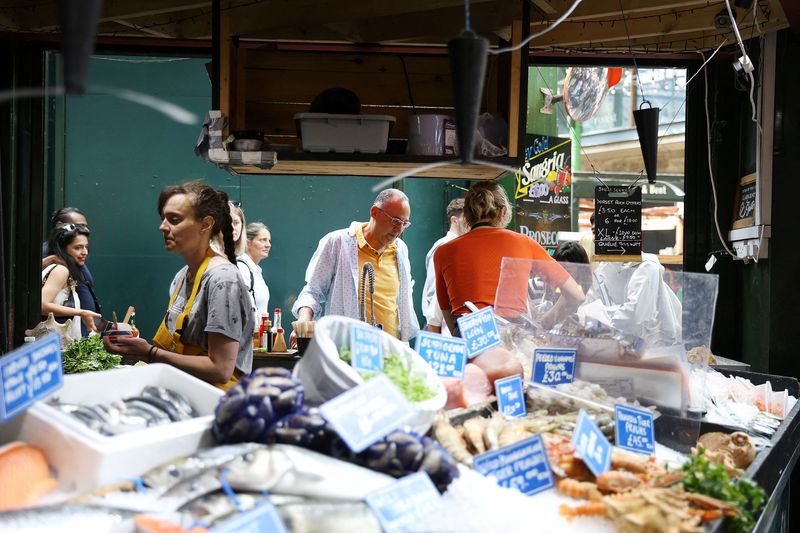By Suban Abdulla
LONDON (Reuters) - British consumers have turned more pessimistic in the face of rising interest rates and high inflation, according to a survey published on Friday which ended a five-month streak of growing confidence levels.
Market research firm GfK's headline gauge of consumer confidence fell to -30 this month from -24 in June, the first decline since January, and below the -26 forecast in a Reuters poll of economists.
"Reality has started to bite and, as people continue to struggle to make ends meet, consumers will pull back from spending," Joe Staton, GfK's client strategy director said.
The fall was the biggest month-on-month drop in GfK's confidence measure since March to April 2022 when inflation accelerated after Russia's invasion of Ukraine.
British inflation eased by more than expected in June, falling to 7.9% from 8.7% in May, but households are still contending with the fastest pace of price growth among the world's big, rich economies.
Staton said the recent slowdown in inflation will do little to improve consumer confidence.
"Consumers need to see falling prices and interest rates before that happens," Staton said.
GfK's monthly survey showed a decline in all measures of consumer sentiment compared to the previous month.
The Bank of England has increased interest rates at 13 meetings in a row since the end of 2021, raising its Bank Rate to 5% in June. Financial markets see an even split in the chances of a 5.75% or 6% peak in rates.
Britain's economy has so far avoided forecasts of a recession this year.
But GfK's gauge of how consumers view the economy in the coming 12 months fell sharply to -33 from -25 this month while feelings about their personal finances over the same period fell by six points to -7.
Its sub-index of shoppers' willingness to make expensive purchases declined seven points.
The resilience of consumer confidence in the first half of this year was helped by low levels of unemployment and separate data published on Friday showed employers still seeking to hire.

The Recruitment and Employment Confederation said demand for staff was significantly higher than a year ago despite the cost-of-living headwinds facing the economy.
Active job adverts were up by more than 50% as firms struggled to fill roles, Neil Carberry, Chief Executive of the REC, said.